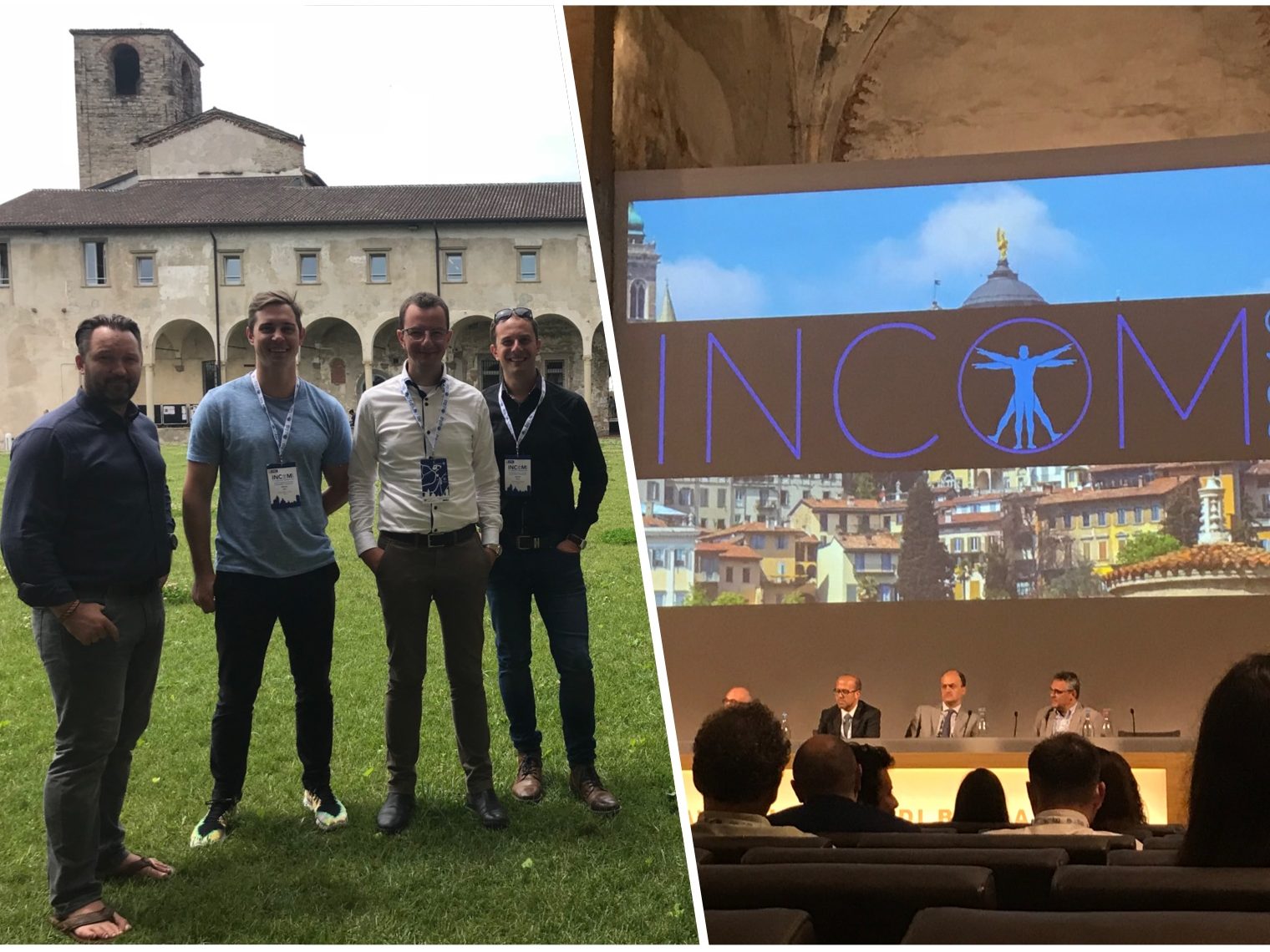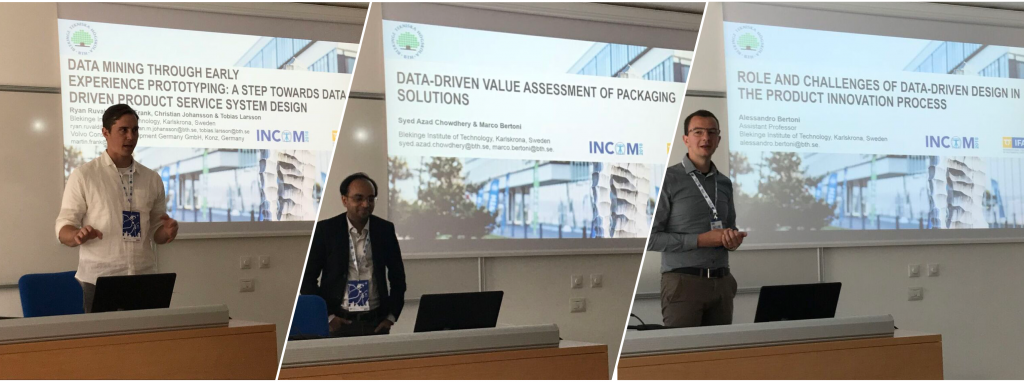
Designing Product Service Systems in the digital era: a BTH PDRL Special Session at the INCOM 2018 conference
- Post by: Marco Bertoni
- 14th June 2018
- No Comment
More than 100 billion objects are expected to be connected by 2020 in the Internet of Things. This unprecedented opportunity to record and collect data about how we use a product (or experience a service) is main item in today’s design research agenda.
“Data-driven Product Service System design” was the topic of the “Special Session“ organized by BTH PDRL and the CELS research group at University of Bergamo during the 16th IFAC Symposium on Information Control Problems in Manufacturing (INCOM 2018).
INCOM is a main international forum and networking event within the International Federation of Automatic Controls (IFAC). The INCOM conference series dates back to the late seventies, pioneering the field of information control systems in manufacturing. Nowadays the event is organized on a triennial basis, being hosted this year by the University of Bergamo in the beautiful San Agostino complex, in Bergamo’s old town. INCOM 2018 gathered a total of 390 participants, who contributed with more than 290 papers, presented in 7 parallel sessions.
Ass. Prof. Marco Bertoni was Associate Editor for the PSS track at the event, and chaired the Special Session together with Alice Rondini (previously visiting scholar at BTH PDRL) from the University of Bergamo. The session featured a total of 11 papers, which aimed at raising industrial and academic attention on the opportunity created by the development of data-driven support for PSS design – from enabling a more effective planning of the PSS to supporting ideas generation and recombination, from discovering latent user needs to embodiment design.
PhD Alessandro Bertoni, together with PhD students Ryan Ruvald and Syed Azad Chowdhery, presented the findings from the application of data-driven PSS design methods matured in collaboration with industrial partners in the construction, food packaging and aerospace industry.
Here below you can find the four research paper contribution details and links for download.
Role and Challenges of Data-Driven Design in the Product Innovation Process
The paper discusses the role and the challenges of integrating Data-Driven Design (DDD) models in the product innovation process. Firstly, based on academic literature on the Product Innovation Value Streams and on Model-Based Decision Supports, the paper highlights how and when the use of DDD models can support a more effective product innovation process. Secondly, it highlights a list of challenges to be considered for the development of new DDD models for decision support. Ultimately, those challenges are formalized in an evaluation matrix intended to guide the further development of DDD.
Download here: Bertoni, Alessandro (2018) Role and Challenges of Data-Driven Design in the Product Innovation Process
Data-driven value assessment of packaging solutions
Research in Product Service Systems design increasingly focuses on how to develop ‘capabilities’ for assessing the value of solutions already in a design project fuzzy front end. A data-driven approach shall then guide engineers in the process of identifying what to develop, and not merely to verify if a solution meets (or not) performance requirements. This process of frontloading problem identification and solution generation activities with models is of high interest to raise quality and lower risk and cost for the development work. The objective of the paper is to explore the use of a data-driven approach to enable value prediction of packaging material configurations in early design. Its main objective is to present a methodological approach and a framework to connect high-level aspects of customer value with simulations and analysis conducted on the mechanical properties of packaging material.
Download here: Chowdhery, Syed Azad and Bertoni Marco (2018) Data-driven value assessment of packaging solutions
Modeling resale value of road compaction equipment: a data mining approach
Resale value is an important aspect to be addressed when companies aim to shift from one-sale models to Product Service Systems (PSS). In the initial stages of the PSS design process, it is beneficial to predict how the mechanical features of the PSS hardware will impact resale value, so to orient business strategy decisions accordingly. The objective of this work is to propose a methodology to model the resale value of road compaction equipment using data mining techniques. By scrapping and merging data sets from the machine manufacturer and from dealers of second-hand machines, the work discusses how the derived correlations may be used to populate value models for early stage decision making.
Download here: Chowdhery, Syed Azad and Bertoni Marco (2018) Modeling resale value of road compaction equipment: a data mining approach
Data Mining through Early Experience Prototyping: A step towards Data Driven Product Service System Design
The construction industry is ripe for disruption through innovative solutions that provide added productivity. Equipment manufacturers are attempting to disrupt their industry with investments in autonomy, electrification and product-service system business models. Designing solutions that will operate in completely new systems or modify an existing complex system require new approaches to address the uncertainty of system impacts. An iterative approach can help tackle ambiguity through cyclical validation of design decisions. Data mining in each cycle adds a quantitative dimension to the rationale of decision making, but data is sparse and difficult to collect in parallel with design of theoretical product-service systems operating in future scenarios. This can be combated using experiential prototyping techniques to design flexible infrastructure that supports contextualized data gathering in a variety of focused design sprints using Design, Build and Test approach. The intricacy of designing innovative solutions to increase productivity in the construction industry can be untangled by framing aspects of the problem in small sprints and testing them in a contextualized setting built to generate functional data to drive design.
Download here: Ruvald, R., Frank, M., Johansson, C. and Larsson, T. (2018) Data Mining through Early Experience Prototyping: A step towards Data Driven Product Service System Design


